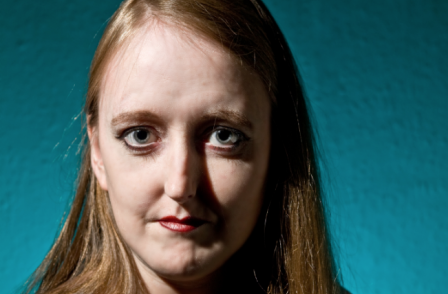
Last week, coroner Michael Singleton gave his verdict on the death of teacher Lucy Meadows. It was a small inquiry in a small town but it became national news. Why? Because in his closing comments the coroner said that the press should be ashamed of the way they treated the deceased.
Now that the dust has settled, we can look back on the case and its conclusion. The coroner’s request that the press respond to this with sensitivity has been blithely ignored by the likes of The Daily Express and Spiked, which saw fit to return to the monstering originally inflicted on Lucy. The Daily Mail, subject to the heaviest criticism, has been more civil in its response but has held fast to the line that, as Lucy’s suicide note made no mention of the press, there is no case to answer.
This overlooks two important points: first, the coroner’s conclusions were not reached on the basis of the suicide note alone; and secondly, whether or not press attacks on Lucy directly contributed to her death, they were cruel, unnecessary and – yes – shameful.
That Lucy was distressed by those attacks is a matter of public record. She made a formal complaint to the PCC in which she described their impact on her life. Prior to this, she sought advice from my charity, Trans Media Watch. That correspondence is not for publication but was supplied to the coroner along with the statements of her family members and friends. In other words, the coroner’s conclusions were based on multiple sources of information, as is usually the case – and as any newspaper editor would expect.
Trans Media Watch has been accused of pushing an agenda here, so let me take this opportunity to clear up some misunderstandings. We have not called for anybody to resign. We are not in favour of state regulation and do not lobby for censorship. Most of our work is about proactive engagement and education. All we ask for is that reporting on trans and intersex people be accurate and not demeaning – in other words, responsible journalism.
Lucy was just an ordinary member of the public in an ordinary job in a small town. Quite what the news value was in her decision to transition has yet to be explained. The vast majority of parents and staff were supportive, so claims of ‘controversy’ at the school were somewhat disingenuous. It’s easy to find one or two parents at other schools who don’t like teachers because they’re gay, black or Muslim, yet those stories don’t make the national news and we don’t see newspaper pundits saying such teachers should be sacked. Why, then, attack Lucy?
Some commentators have insisted that there needs to be a debate about whether trans people are fit to be teachers. There seems to be little evidence to substantiate their case but even if we accept this proposition, why does that debate need to be personal? In what other context would it be acceptable to start such a discussion by ridiculing a private individual?
Whatever the reason that Lucy found, in the end, she could no longer cope, it’s time some journalists took a hard look at themselves and asked why they treated her so badly when she was alive. The sad truth is that her case is just one of many.
As our submissions to the Leveson Inquiry illustrate, we regularly work with people who have had their lives turned upside down by press monstering, often losing their jobs in the process. But we don’t do what we do because we want to monster the press.
We do it because we believe – as Lucy did – that the press can do better.
Jennie Kermode is chair of Trans Media Watch.
Email pged@pressgazette.co.uk to point out mistakes, provide story tips or send in a letter for publication on our "Letters Page" blog
